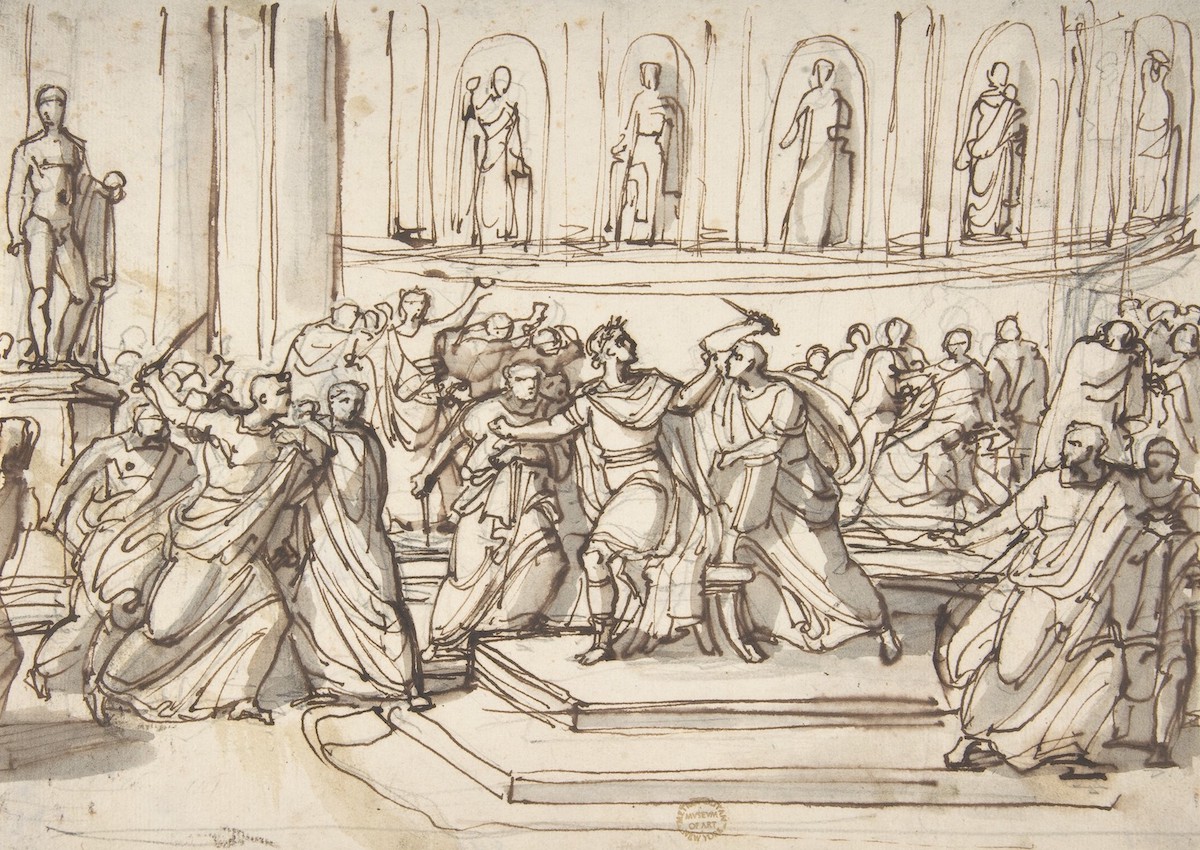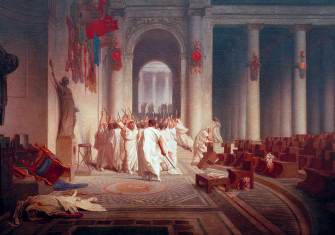What was the Impact of Julius Caesar’s Murder?
Julius Caesar was killed on 15 March 44 BC. We’ve heard about the ‘Ides of March’ – but what happened next?

‘Caesar’s is the only death that still reverberates’
Emma Southon, Author of A Fatal Thing Happened on the Way to the Forum (Oneworld, 2021) and A History of the Roman Empire in 21 Women (published in September 2023)
The Ides of March was a bottleneck in Roman history. Before it was the Republic and after it came the Principate, under the rule of a single emperor. Julius Caesar was neither the first nor the last leader to be assassinated in Roman history, but his is the only death that still reverberates. The Ides of March left an immediate impact on the Roman historical landscape not just because of Caesar’s unique position as Perpetual Dictator, but because it opened the door for his astonishing grand-nephew Octavian (who later renamed himself Augustus) to reshape the entire political world and to look reasonable while doing it.







